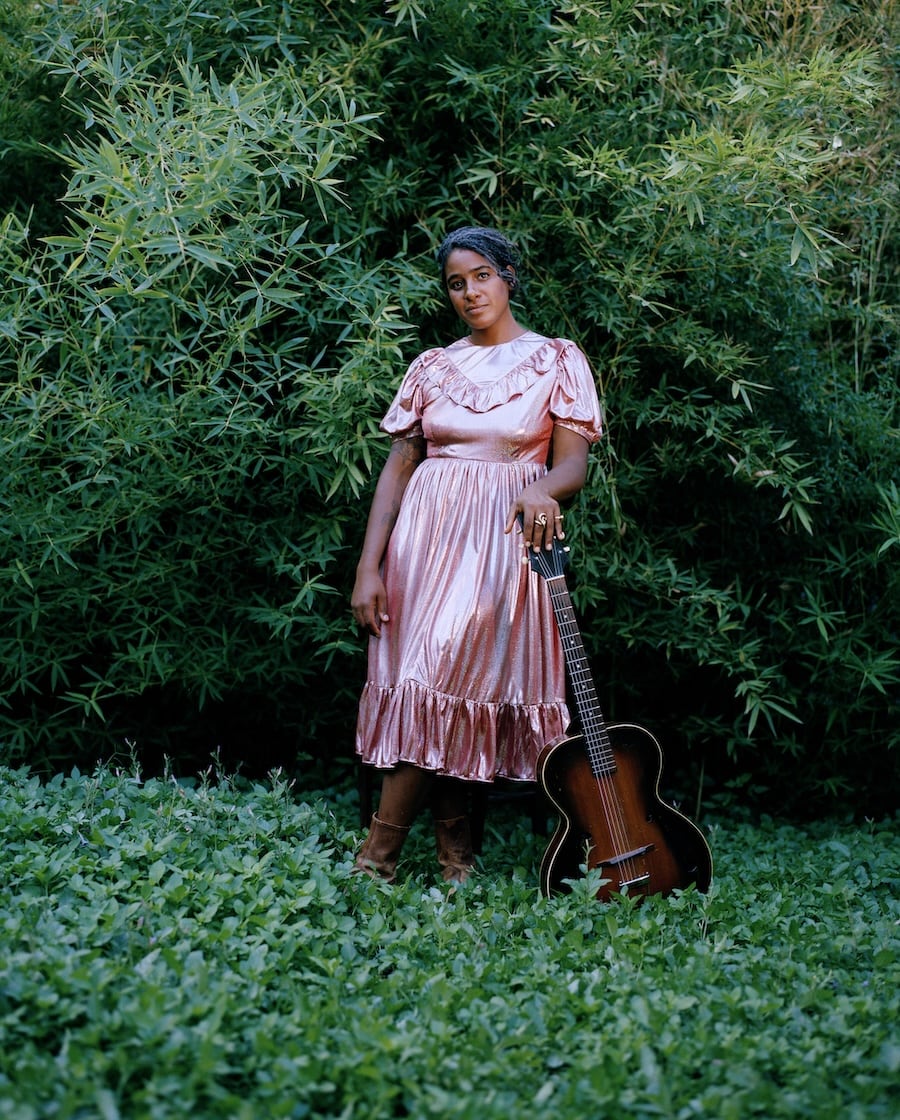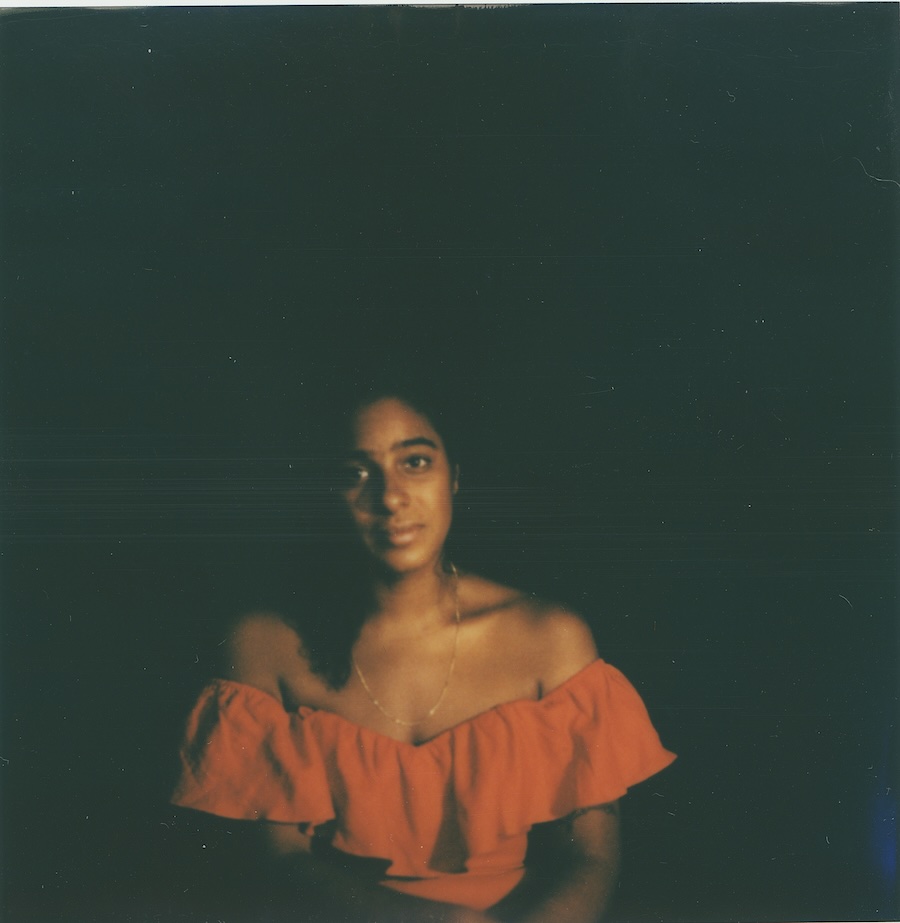In her own words, Leyla McCalla has been having a super interesting day. Speaking to KLOF Mag from a sunlit Airbnb in Richmond, Virginia, she relates some intriguing news. “I’m working on a project about African American burial grounds in Richmond,” she says. “I’m an artist in residence at the university here. Today I’ve been meeting the most interesting historians, photojournalists, newspaper editors and writers, filling me in on all this history. It’s gonna make some kind of song cycle, but I’m still figuring out how it will look.”
McCalla’s albums to date have often had an underlying theme, ranging from the poetry of Langston Hughes, through political satires to subversive Haitian broadcasters. For her new record, Sun Without the Heat, she draws more directly upon personal experience. McCalla says, “With some distance now, I’m seeing these songs were about transformation and what it takes to create change on a personal or macroscopic societal level. That’s reflected in the changes in my own life – becoming a mother, a wife, a divorcee, a business owner. Part of being an artist is that deep commitment to turning ourselves inside out to make new work. When I wrote these songs I was coming from a place where my grandfather had just passed away. I also lost my brother a couple of years ago.”
McCalla’s previous outings have embraced Haitian folk music, Latin licks, Creole swing and the nostalgic old-time magic of New Orleans. She’s not been averse to some revved up rock riffs either. Her songs never flinch from reality, hardship or anxiety despite their heartwarming vocals and honey-laced melodies. Sun Without the Heat is perhaps McCalla’s most emphatic album yet, both musically and lyrically. Full of sensual ecstasy, twangy strums and hip-rolling dances, it’s nourished by African roots music but often glides into a mystic herbal haze.
Explaining her narrative approach to this project, McCalla says, “I always look to writers and poets, to philosophers and thinkers for inspiration, to help wrap my head around stuff. My friend jackie sumell runs a social sculpture project called The Solitary Gardens in New Orleans, highlighting solitary confinement in US prisons, especially at Angola in Louisiana. I told her I was thinking of songs about the overwhelm of life and she gave me this book called Undrowned by Alexis Pauline Gumbs. It’s basically about black feminist lessons learned from marine mammals. I’m naturally existentialist so I’m always going, like, why are we here? That book helped me see myself and the challenges in our society, the devastation of this planet, the separation from ourselves in nature. I also read Liberated to the Bone by Susan Raffo. She talks about the original wounds of our society – colonisation, genocide, taking land from people and using the ‘colour’ line to justify it all. All these things resonated as I’ve been studying Haitian history for years. This was the storm of research that went into writing the album.”

McCalla’s symbolism is kept simple, yet her songs can embody both joy and suffering. “It comes from trying not to mince words, trying to be specific and not confused about what’s coming through. Sometimes it appears in more figurative language, but this record came out as quite prayerful. A lot of these songs were written in the studio, I arrived with some words here or a verse there, but didn’t know the gaps. There’s a few phrases adapted from other writers, including Frederick Douglass’s poetry from the 1850s.”
One source for the new songs was Duke Ellington, whose Far East Suite inspired the stunning track Tree. “I’d been listening to Mount Harissa from that album, trying to remake it with words. Tree is about a woman who feels unloved and turns herself into a tree, isolating herself. I wanted to liberate this woman, maybe myself, from feeling that way. And to push it musically to the edge, make it a little scary. Women are powerful! And trees have these incredible root systems, they’re connected to all of life. They host life.”
McCalla came into this album hoping to get an Afrofuturistic angle on the diasporic music that’s been in her mind. “I had some highlife things on the guitar, I was also mining West African grooves and banjo lines. The last album was so much about Haiti and its ancient rhythms, many of which derive from African drumming traditions. It’s not something I hear a lot of in the ‘folk’ world, maybe more in a global music context.” McCalla’s drummer, Shawn Myers, is well-versed in diasporic styles of music, notably from Haiti and Brazil. He plays a key role in building the album’s energy and healing frequencies. McCalla also credits producer Maryam Qudus with ideas and choices about guitar textures. “I played her a lot of music I appreciate from the 60s, or stuff made to sound like that. I love fuzzy trebly guitars and Maryam had lots of pedals and studio tricks.”
The stark and moving Give Yourself A Break has some celestial plucking from guitarist Nahum Zdybel. It’s a song tribute to McCalla’s late brother, written from varied perspectives. “I used to call my brother and ask him for advice, or vent to him about what was going on. He was always gentle with me, never judgmental or reproachful. I imagined the song as a lullaby and thought about my daughter while writing it. I wondered what my brother would tell me while I’m parenting this child? It became unclear whether it was my brother singing to me, or me singing to my daughter. Or even my daughter singing to herself. Who knows? I was thinking about the impermanence of life. Give yourself a break while you’re here on this planet. We weren’t born to be just suffering and reckoning with our decisions all the time. We have to rest and allow ourselves some space.”
In her media notes for the album, McCalla says she wanted to write a song that could’ve been sung at marches during the civil rights era. The record’s closing cut, I Want To Believe, is that song, a hopeful hymnal backed by the dignified richness of cello and piano. “I Want To Believe came about when I was thinking of the 60s activist Fannie Lou Hamer and the modern BLM protests,” she says. “Then you look at what’s happening at Columbia University right now where students have set up on the grounds, saying they won’t leave until the school divests itself of Israeli institutions that profit from apartheid and genocide. When I think about my life comparatively I’m glad to be in 2024 and not 1963. There has been progress made but there’s more to come. I think of it as a circle, or a spiral, it’s not a linear path. We can never rest on our laurels and say we’ve solved racism.”
McCalla is among an incredible generation of black female artists in the UK, US, South Africa and elsewhere. Naming some, she recalls, “I met Matana Roberts when I was a cocktail waitress at a venue she played. To me she’s like a friend, an elder, a hero, an amazing thinker. She gave me one of the original transcripts of her Coin Coin project that I found in a house-moving box recently. It’s like a piece of treasure. I saw Aja Monet perform this year at the Big Ears festival in Knoxville, Tennessee. Kadhja Bonet is the little sister of my friend Bria who plays viola in my band. I feel part of this incredible web of black artistry. And yet it’s like we need more spaces to connect more directly. There has to be an opening for that. It is different to interact with a black woman’s work for me. I feel like I understand where they’re coming from. I don’t think that’s projection, I think it’s experience.”

Away from music, McCalla has been busy in her garden. “I just planted so many seeds and I’m really praying it all works out how I’ve imagined,” she says, laughing. “I’m trying to do a wildflower sanctuary for bees and for tracking pollinators. Then I have tomatillos, basil, Thai basil, sweet peppers called Jimmy Nardello’s, some eggplants, bush beans. I’m a real crazy person, I have a garden at home but also a community plot. I got really obsessed about the health food movement in my early twenties. I was a waitress at this vegan and raw food restaurant in the East Village called Caravan Of Dreams. So I was always into cooking healthily and learning about it. When the pandemic hit I got even more into fermented food, sourdough bread and catering at home. I went all in. That’s when my gardening really took off and I learned about things like soil health too. I’ve been away travelling for a week, so I’m in the ‘missing my kids’ part of the cycle. But I love cooking for the family, I’m a real homebody.”
https://solitarygardens.org/about
